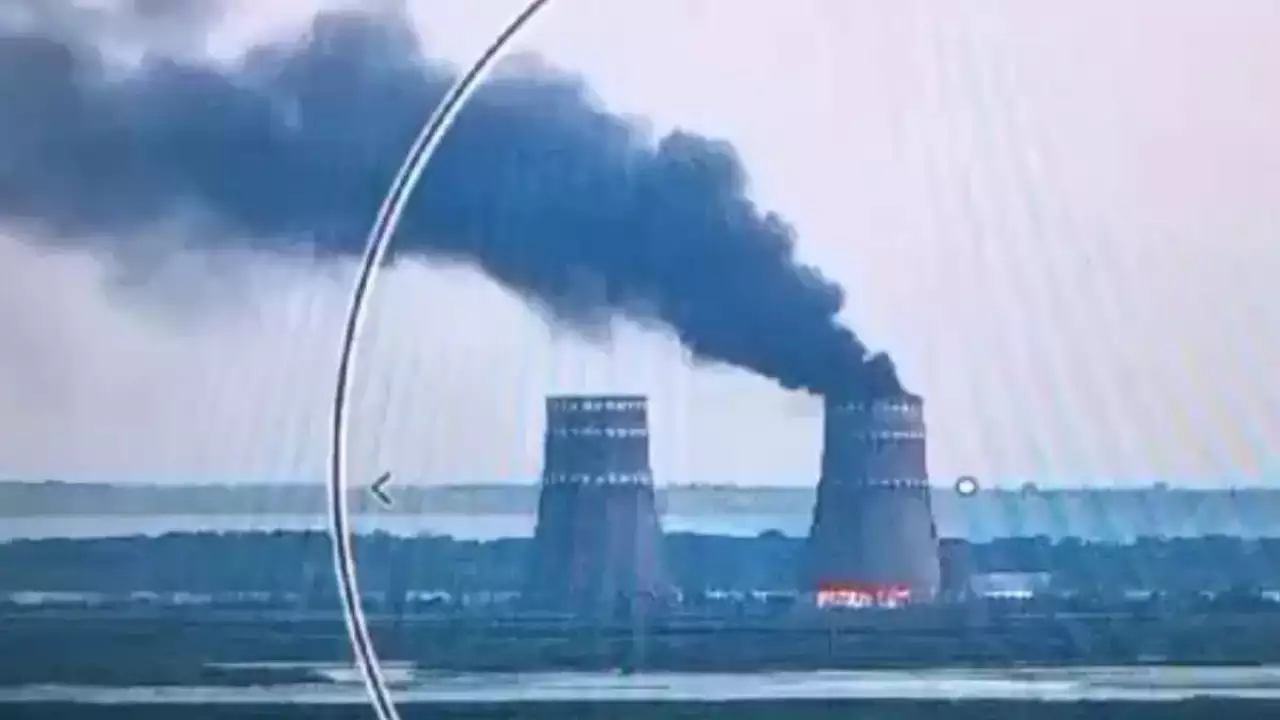Ukraine, Russia and the International Atomic Energy Agency (IAEA) said there had been no detected spike in radiation levels or any impact on nuclear safety.
A Moscow-installed official, Vladimir Rogov, said the blaze at a cooling tower has been “completely extinguished” in a Telegram post Monday.
He and Yevgeny Balitsky, the Moscow-installed governor of Ukraine’s Zaporizhzhia region, blamed “Ukrainian armed forces” for the incident.
Ukrainian President Volodymyr Zelensky said in a social media post that “Russian occupiers have started a fire” at the plant, accusing them of trying to “blackmail” Kyiv.
“Currently, radiation levels are within the norm,” he added. Balitsky and the facility’s press service also reported the “radiation background” around the facility was normal.
“No impact has been reported for nuclear safety,” the IAEA, which has experts stationed at the plant, said.
“IAEA experts witnessed strong dark smoke coming from ZNPP’s northern area following multiple explosions heard in the evening,” the UN agency said in a post on social media platform X.
It said the plant had reported to them an “alleged drone attack today on one of the cooling towers”.
IAEA requests access
In a later statement, the IAEA said it had requested that its team get “immediate access to the cooling tower to assess the damage”.
Kyiv has accused Russia of purposefully starting the fire.
“Russia must be held accountable for this. Only Ukrainian control over the Zaporizhzhia nuclear power plant can guarantee a return to normalcy and complete safety,” Zelensky said.
Ukraine’s interior minister said Kyiv was “intensively monitoring” radiation levels from nearby meteorological stations.
All six of its reactors are currently in cold shutdown, the plant’s press service said after the incident.
“There is no threat of a steam explosion or any other consequences,” Balitsky said.
A video published by Zelensky showed black smoke billowing out of one of the station’s cooling towers as red flames licked around the bottom.
Russia seized control of the plant just days after it launched its full-scale military offensive in February 2022.
The site is on the eastern bank of the Dnipro river — a de facto front line snaking through southern Ukraine.
Ukraine controls the opposite bank and Russia has repeatedly accused its forces of deliberately shelling the nuclear power station — claims denied by Ukraine.
Kyiv, in turn, has accused Moscow of militarising the facility, including by placing heavy weapons there at the start of the conflict.
The IAEA has repeatedly urged restraint, saying it fears reckless military action could trigger a major nuclear accident at the plant.






